Curated by Sonia Smith-Kang of Mixed-Up Clothing & Los Tweens & Teens
As I sit with the events of the last few months, I remind myself that the feeling has been with me much longer than that. It’s been a chronic collective trauma perpetuated by systemic racism and the inequality that has faced my Black community.
When I close my eyes and stay in my thoughts, I often find myself thinking back to George Floyd. As I watched Floyd’s life being sucked out of him, all caught on video, I hear him cry out for his mama. I hear him beg for his life and call out for his deceased mother. As an AfroLatina mama of 4, this strikes a deep chord within and I feel myself sink into a dark place. In this silent moment, eyes closed, heart open, I vow to remain steadfast in my mission of fighting for more representation, justice and equality.
Last week we celebrated Juneteenth. The anniversary of the day in 1865 when a general read Abraham Lincoln’s emancipation in Galveston, Texas, to take control of the state, and bring freedom for the last remaining slaves in the area.
It’s holidays like Juneteenth that we all should recognize and know more about. We cannot turn away from this history or disconnect from it. Let’s vow to reach out to others and listen with openness. Let’s hold space for love and acceptance. Let’s vow to dedicate ourselves to learning and teaching our children. Let’s vow to dedicate ourselves to taking a deeper look at racial inequality and injustice and sharing this information. Let’s vow to dedicate ourselves to being intentional and challenging people to move beyond silence. Better yet, let’s vow to turn up the volume of action and accountability.
It’s time to fight racism by learning about the racism the Black community has faced on a near-daily basis for generations. Parents and caregivers may not always have the answers, but we can be a positive force in the movement toward equality. I am hopeful that we are in a time of an awakening; a chance to actively peel back the damage and begin the anti-racist work that needs to be done.
George Floyd’s cry for his mama should forever serve as a call to action to parents and caregivers.
Here are some strategies:
- Model good behavior Check yourself, challenge past lessons taught through a narrow cultural lens and fight learned stereotypes
- Do the work Be intentionaland do thework. Being “color-blind” will not work. Acknowledge others
- Speak up and speak out Silence is complicity. Expect more of people by not excusing bad behavior or letting racism go unchallenged
- Stand up for and empower people around you Actions speak louder than words so be vigilant in redirecting conduct which is intolerant and disrespectful. Recommend BIPOC makers, creatives, founders, influencers and amplify their work/voices
- Avoid judgment Be understanding and avoid small, everyday assumptions. Explore microaggressions
- Participate in and demand systemic changes Be socially and politically conscious. Get involved. Vote
- Buy Black and BIPOC Support BIPOC communities so we may build generational wealth
- Read and watch Learn about the wide array of BIPOC people and their stories. Talk about and share what you learn
As I sit with a wide range of emotions, I’m hopeful we will be the change and start to create an equitable society, one where we work together to make a difference. I’m hopeful we can make the world a better place where we can survive and thrive.
I owe it to my ancestors who’ve endured hundreds of years of mistreatment.
I owe it to George Floyd and his mama.
Now, as you read these words, I ask you to sit with an open heart and join me by vowing to listen and continue to learn. Vow to stand up for what is right and to support one another.
We owe it to our children to fight for justice and equality for everyone.
Here are resources we have compiled. This is a living document, not completed by any means. Please share and let us know who should be added.
Books young readers (we may need a couple of these)
- I Am Perfectly Designed by Karamo Brown
- Black is a Rainbow Color by Angela Joy
- Woke Baby by Mahogany L. Browne
- Antiracist Baby by Ibram X. Kendi
- I am Enough by Grace Byers
- Papa, Do You Love Me? by Barbara M. Joose
- I Love My Hair! // Bippity Bop Barbershop by Natasha Anastasia Tarpley
- Don’t Spill the Milk! by Stephen Davies
- We March by Shane W. Evans
- A Voice Named Aretha by Katheryn Russell-Brown
- Woke: A Young Poets Call to Justice by Mahogany L. Brown
- My Hair Comes With Me by Sulma Arzu-Brown
- Hair Love by Matthew Cherry
- Firebird by Misty Copeland
- Juneteenth for Mazie by Floyd Cooper
- Magnificent Homespun Brown by Samara Cole Doyon
- M is for Melanin by Tiffany Rose
- Tallulah the Tooth Fairy CEO by Dr Tamara Pizzoli
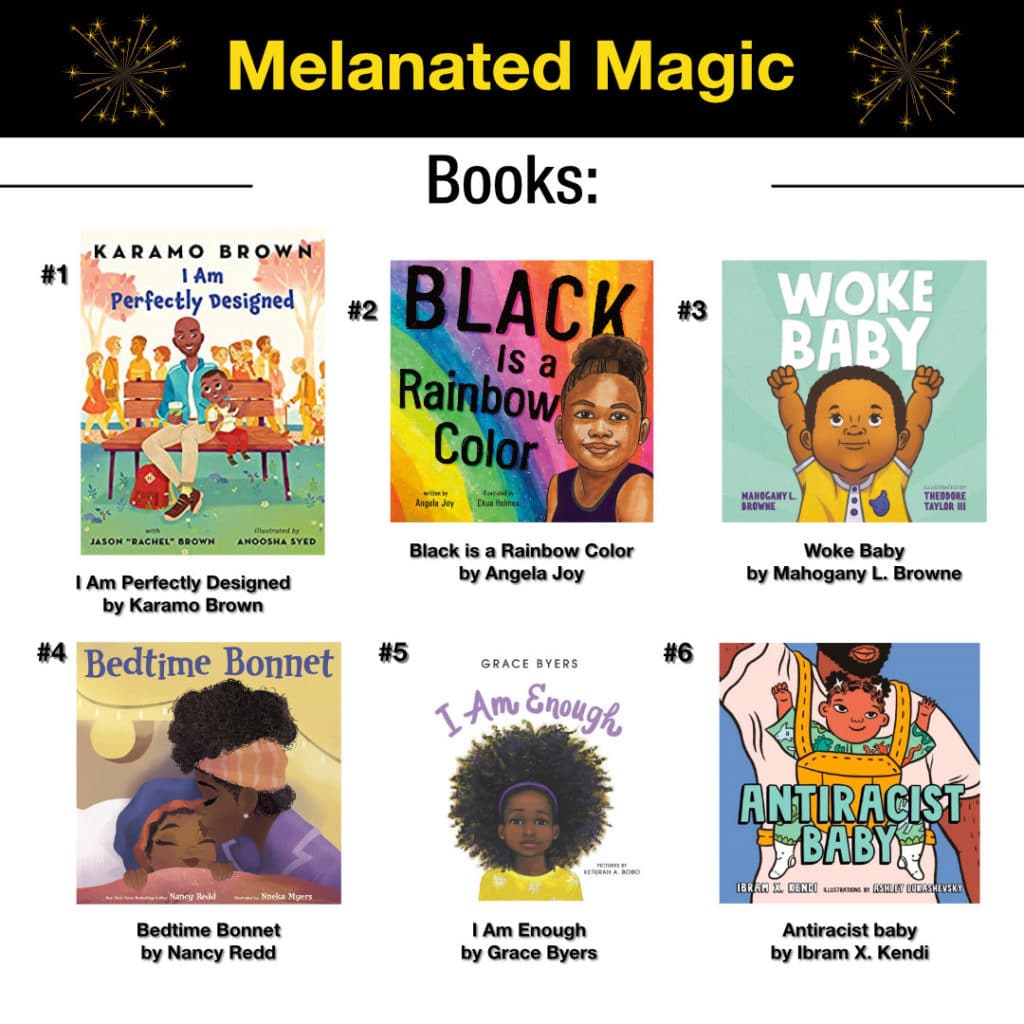
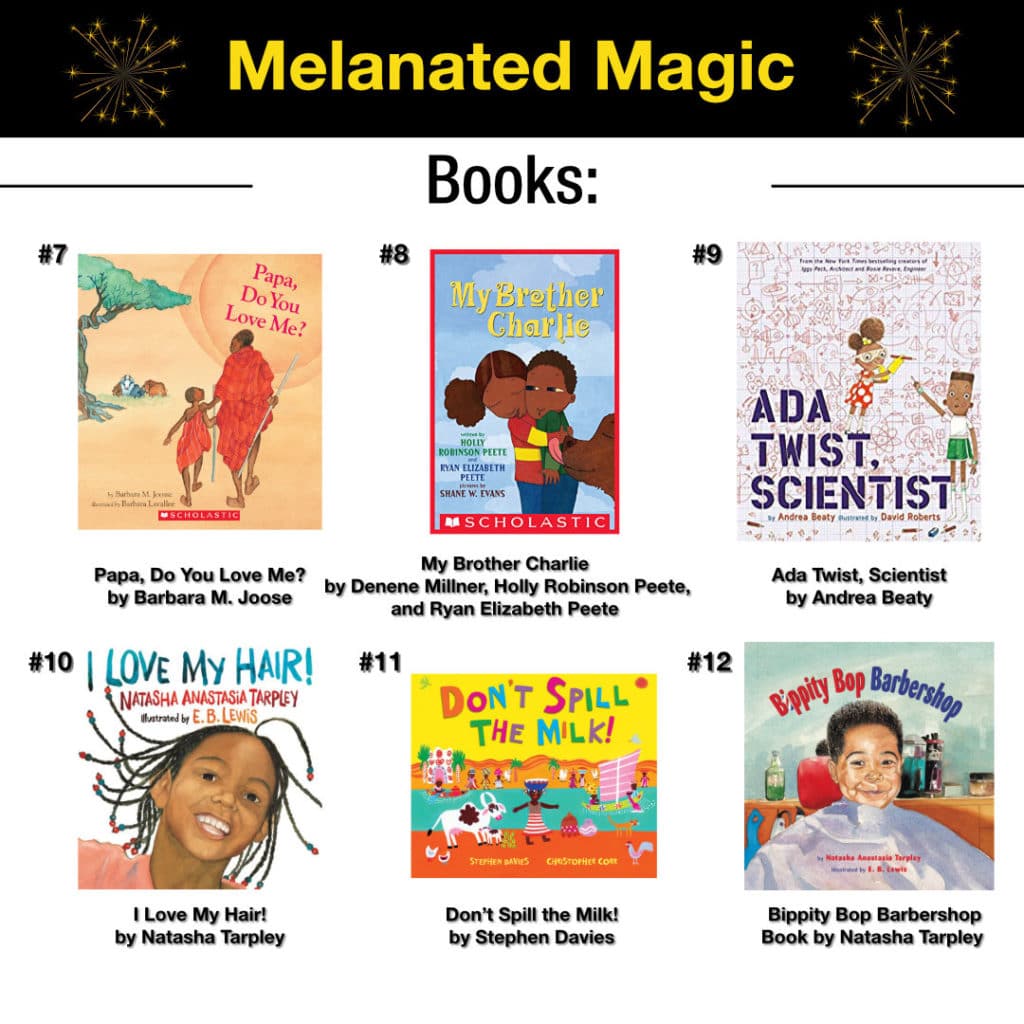
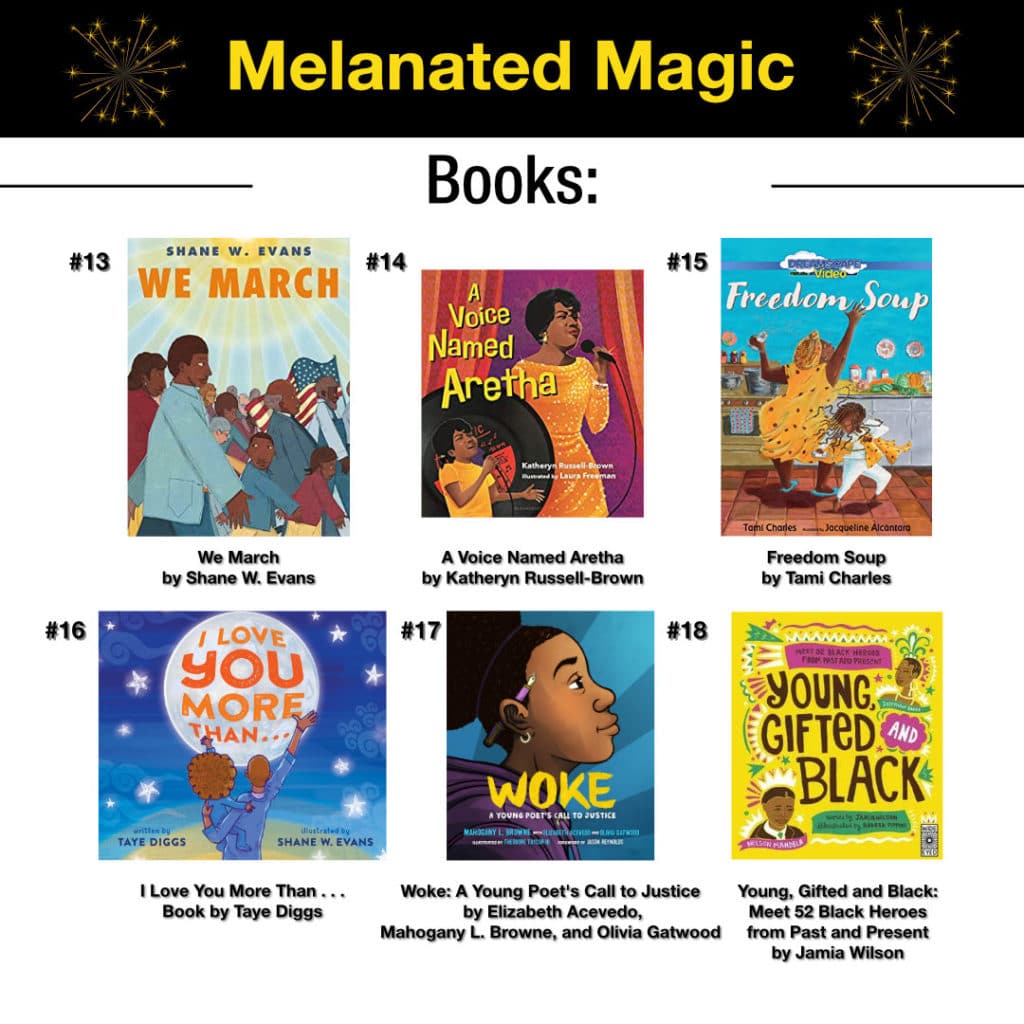
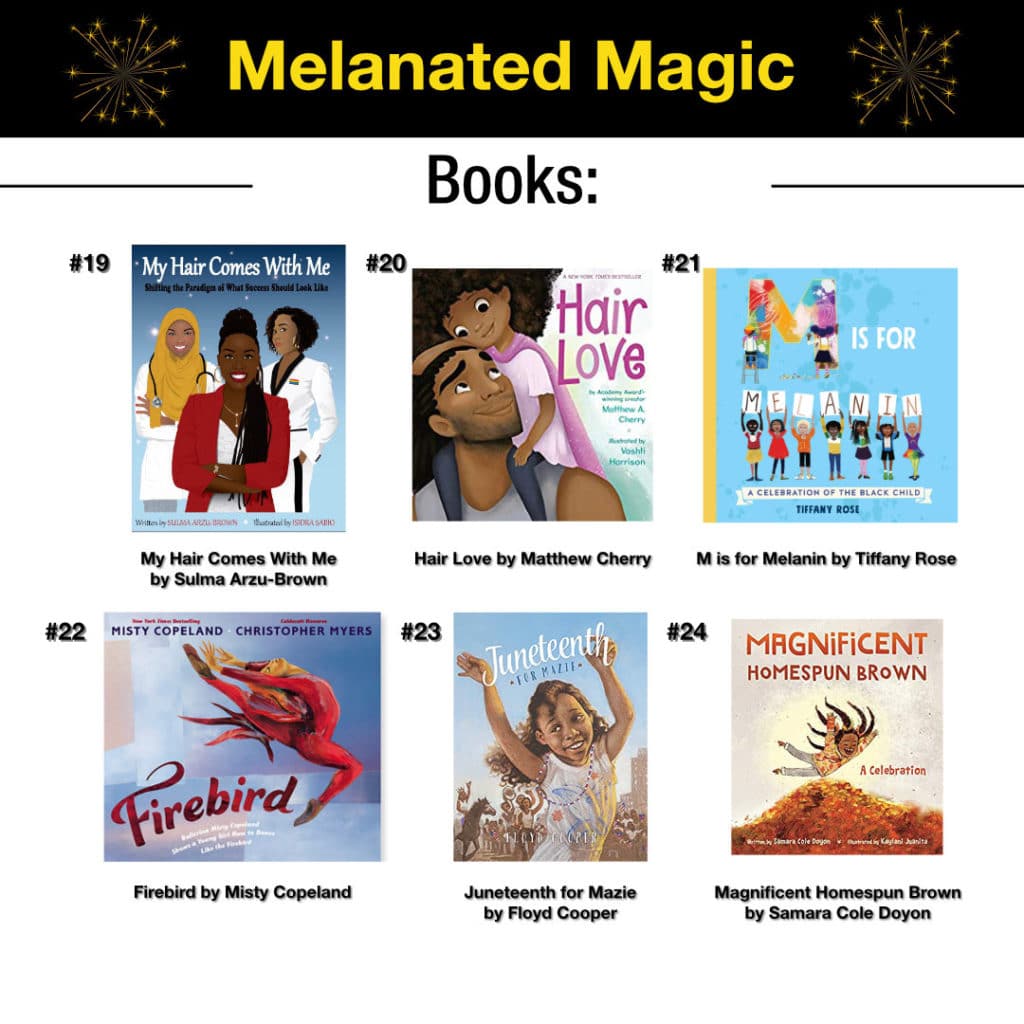
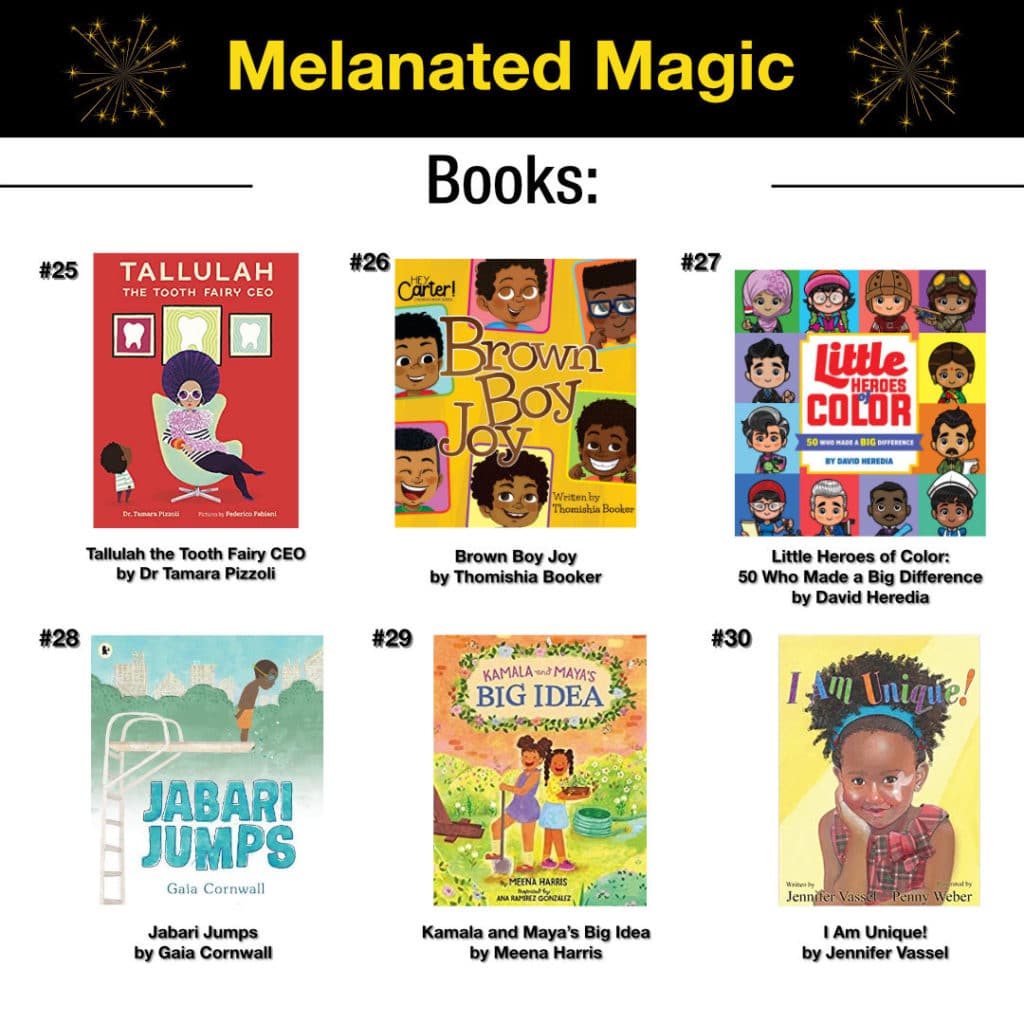
Books older readers
- Celeste’s Harlem Renaissance by Eleanora E. Tate
- Bud, Not Buddy by Christopher Paul Curtis
- Finding Langston by Lesa Cline-Ransome
- Between the World and Me (written as a letter from a black father to his son) by Ta-Nehisi Coates
- The Immortal Life of Henrietta Lacks (non-fiction) by Rebecca Skloot (also a movie from HBO staring Oprah)
- JUNETEENTH: A Celebration of Freedom by Charles A. Taylor
- Harlem Summer by Walter Dean Myers
- The Compton Cowboys by Walter Thompson-Hernandez
- Becoming Billie Holiday by Carole Boston Weatherford
- Invisible Man by Ralph Ellison (1952)
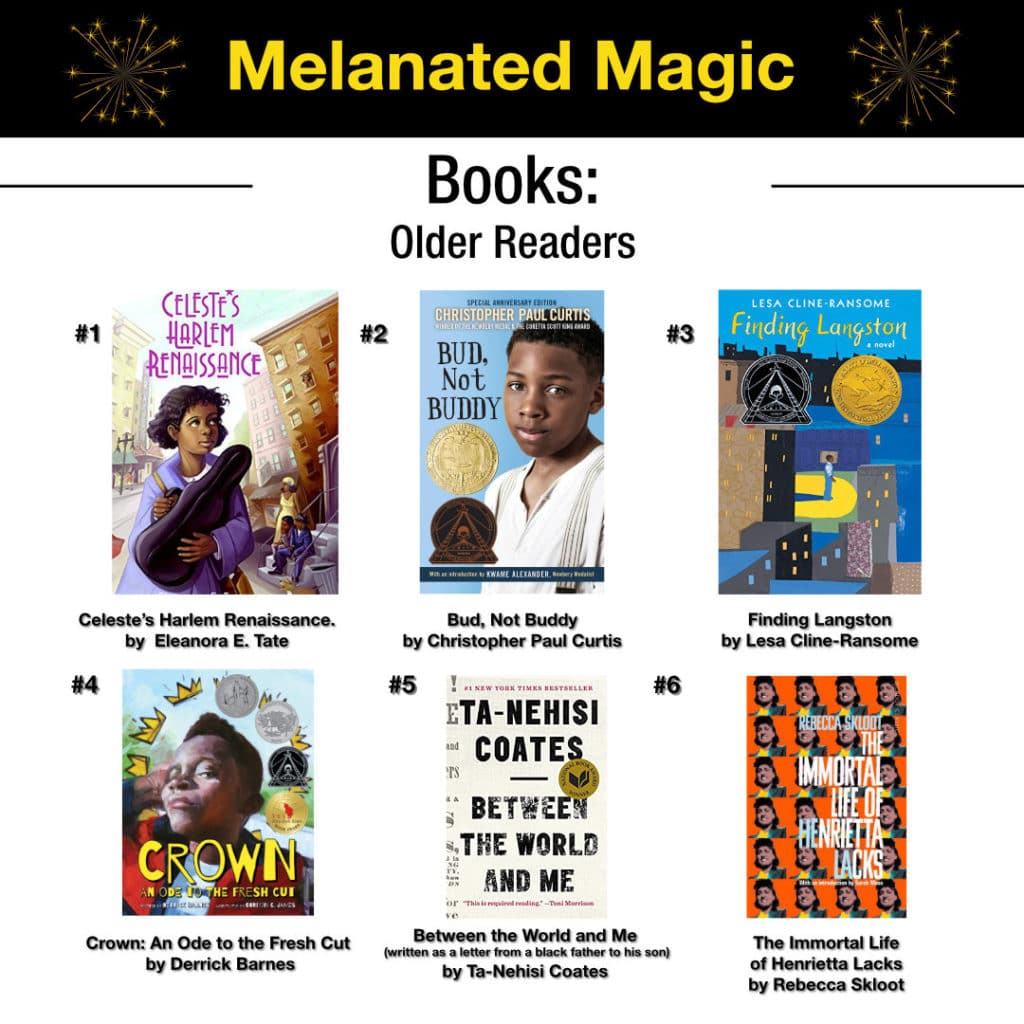
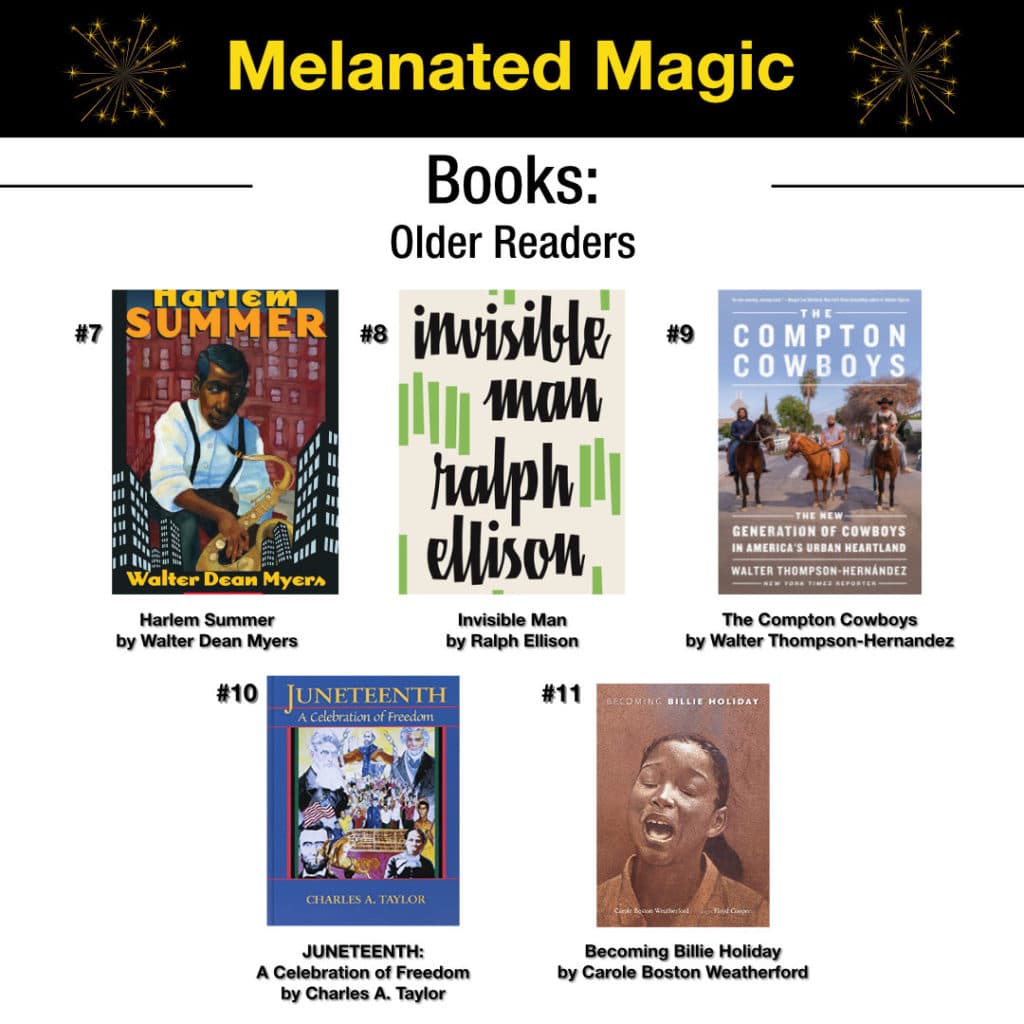
Media
- Sesame Street Racism Talk
- When They See Us (based on the true story of the Central Park Five): Available on Netflix
- I Am Not Your Negro (race relations theme): Available on Amazon (and free with Prime membership)
- 13th – Netflix Documentary (mass incarceration theme)
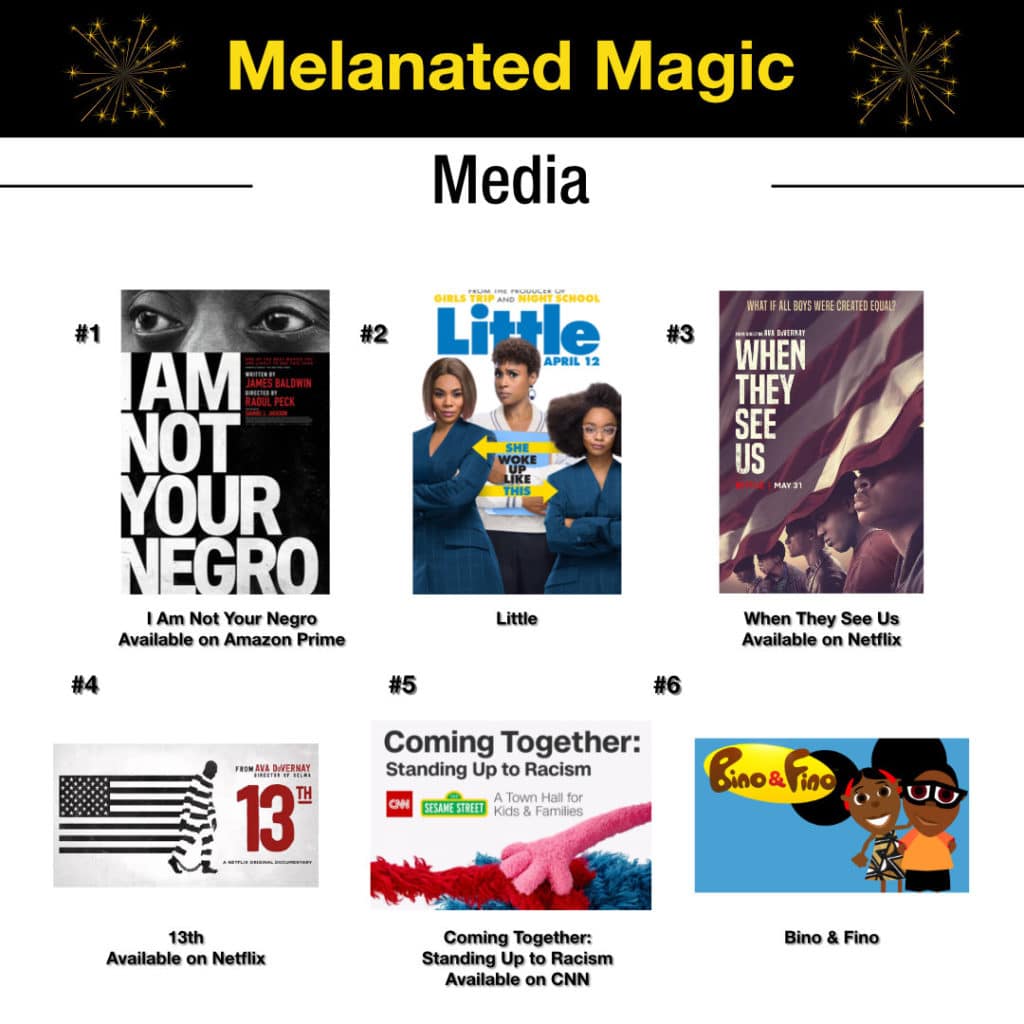
We raise our girls to fight stereotypes and pursue their dreams, but it will never work until we raise our sons more like our daughters.That’s because women’s roles can’t expand if men’s don’t, too skills like cooperation, empathy and diligence give them strong female role models, too. Talk about the achievements of women you know, and well-known women in sports, politics or media.
But neuroscientists say children aren’t born with those preferences. toy segregation has long-term effects call out teach boys to show strength — the strength to acknowledge their emotions. Teach them to provide for their families — by caring for them. Show them how to be tough — tough enough to stand up to intolerance. Give them confidence — to pursue whatever they’re passionate about.
